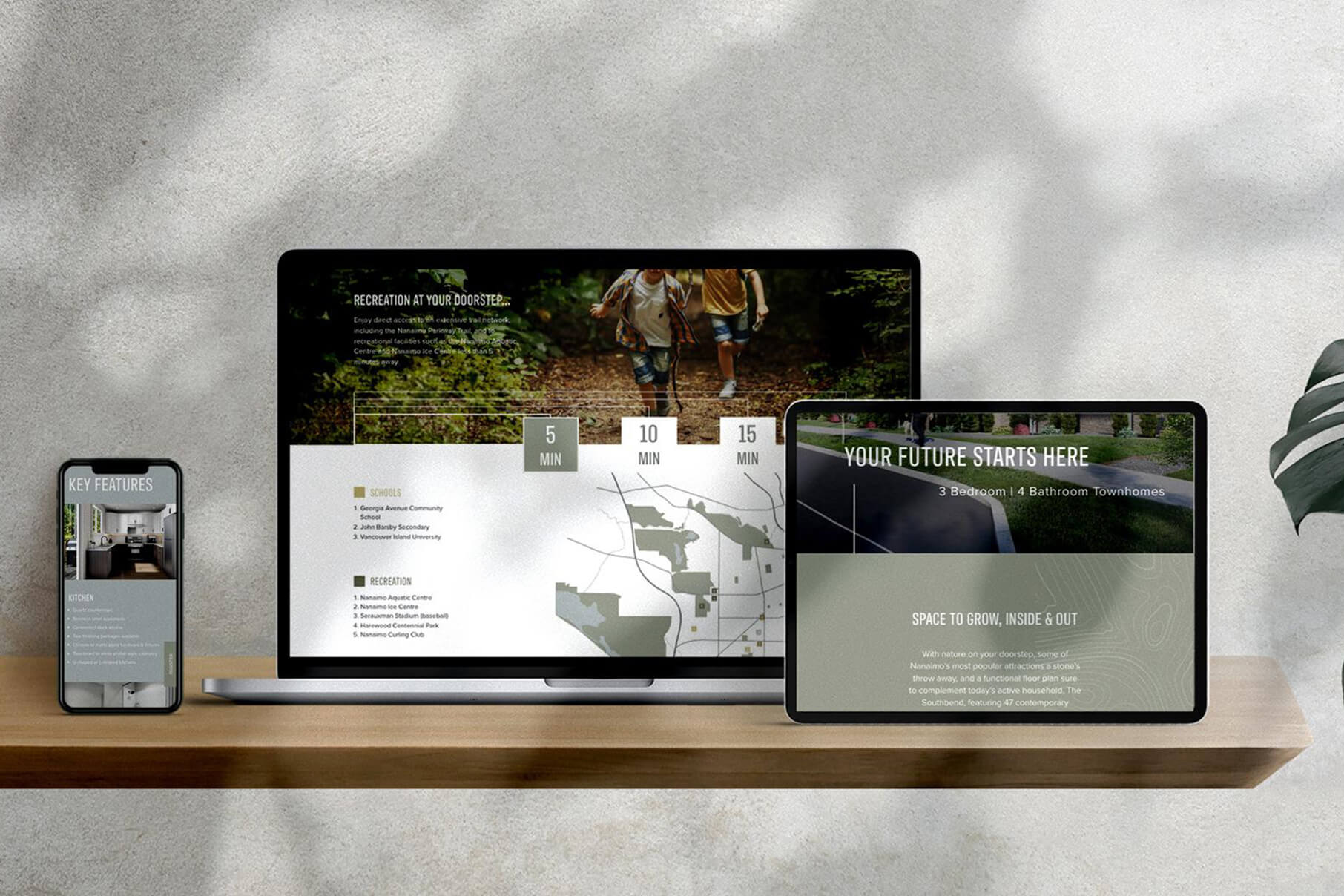Table of Contents
- Introduction
- The Evolving Business Landscape
- Credibility and Professionalism
- Cost-Effective Marketing Tool
- Expand Your Reach Beyond Local Markets
- Control Over Your Brand and Story
- Showcasing Your Products or Services
- Improved Customer Engagement
- Data Collection and Insights
- Staying Competitive
- Adapting to Consumer Behavior
- Generating Passive Income
- Building Long-Term Relationships
- Adaptability to Technological Trends
- Enhancing SEO and Online Visibility
- Cost Savings Over Time
- Conclusion
In today’s digital era, online presence is no longer optional for businesses, regardless of size or industry. For small businesses, establishing a robust online presence through a well-designed website can be the turning point that drives growth, improves visibility, and enhances customer engagement. Whether you’re a Gigred professional offering freelancing services or a traditional small business owner, a website is essential to thriving in a competitive market.
The Evolving Business Landscape
The shift toward digitalization has transformed how consumers interact with businesses. They no longer rely solely on physical stores or word-of-mouth recommendations. Instead, they turn to search engines and online platforms to discover products, services, and brands. This change has made websites the cornerstone of every business strategy, including those in the programming and tech industry or service-based sectors.
Small businesses often question the necessity of a website, especially if they are thriving in their local community. However, the answer lies in the opportunities that an online presence unlocks. Here are some critical reasons why your small business needs a website.
Credibility and Professionalism
A website immediately establishes credibility. In the freelancing and Gigred world, professionals often rely on platforms to showcase their skills and attract clients. While these platforms are beneficial, having a personal website takes your professionalism to another level. It acts as a portfolio demonstrating your programming, tech solutions, or creative services expertise.
For small businesses, a website assures customers that you’re legitimate. In a world filled with scams and misinformation, customers trust businesses that provide clear and accessible information online. Your website is your digital storefront, giving potential customers confidence in your brand.
Cost-Effective Marketing Tool
Marketing can be expensive, especially for small businesses with limited budgets. A website acts as a cost-effective marketing tool that works around the clock. Investing in a simple yet functional site can promote your services or products to a global audience.
Freelancers and small business owners specializing in programming or tech services can use their websites to showcase their expertise, share case studies, and publish blogs attracting potential clients. Search engine optimization (SEO) ensures that your site appears in relevant searches, driving organic traffic without continuous ad spending.
Expand Your Reach Beyond Local Markets
While it’s crucial to establish a stronghold in your local market, a website opens doors to a broader audience. Small businesses often overlook the power of reaching customers in other cities or countries. Freelancers working in tech or programming can use their website to connect with clients globally, increasing their earning potential.
A website also allows you to explore new markets. For instance, if you’re offering freelancing services through Gigred platforms, your website can be an additional channel to attract clients outside those platforms. It helps you diversify your income sources and reduce dependence on one platform.
Control Over Your Brand and Story
Social media platforms and third-party freelancing sites are excellent for building an initial client base but come with limitations. Algorithms change, policies evolve, and accounts can get suspended. Having a website gives you complete control over your brand’s narrative and customer experience.
You can tailor the content to reflect your business values, highlight customer testimonials, and showcase your best work. For example, a programming and tech freelancer can create a detailed portfolio of past projects, helping potential clients understand the scope of their skills.
Showcasing Your Products or Services
For small businesses, showcasing products or services effectively is crucial. A website provides a structured platform to highlight what you offer. Whether you’re selling physical goods, offering programming solutions, or working as a freelancer on Gigred platforms, your website can display your offerings in a way that appeals to your target audience.
You can include descriptions, pricing, reviews, and videos demonstrating how your products or services solve specific problems. This level of detail is hard to achieve through social media or third-party platforms alone.
Improved Customer Engagement
Customers value convenience. A website allows them to interact with your business at their own pace. Whether they want to learn more about your services, read reviews, or contact you directly, a website makes it possible.
For businesses in programming and tech, you can include features like chatbots, FAQ sections, and contact forms to answer customer inquiries quickly. Freelancers can add booking tools or project inquiry forms to streamline client communication.
Data Collection and Insights
Understanding your audience is key to business growth. Websites offer tools to collect and analyze data about your visitors. You can track how many people visit your site, which pages they view, and how they interact with your content. This data helps you make informed decisions about your marketing strategy and service offerings.
For example, a tech freelancer might notice that blog posts about a specific programming language attract the most traffic. They can use this insight to offer targeted services or create more content around that topic.
Staying Competitive
In a market where most businesses have an online presence, not having a website puts you at a disadvantage. A well-designed website can level the playing field even if your competitors are larger or more established. It allows small businesses to compete effectively by showcasing their unique value proposition.
Freelancers and Gigred professionals in programming and tech often face stiff competition. A personal website helps you stand out by offering a professional space to highlight your skills, share client testimonials, and present case studies.
Adapting to Consumer Behavior
Modern consumers expect businesses to have an online presence. They search for businesses online before making purchasing decisions. If they can’t find you, they will likely choose a competitor who has made their information easily accessible.
A website meets these expectations by providing essential details about your business. Freelancers can include a portfolio, pricing, and testimonials. At the same time, small businesses can add features like online booking, payment options, and customer support.
Generating Passive Income
For small businesses and freelancers, websites offer opportunities to generate passive income. You can monetize your site through ads, affiliate marketing, or selling digital products. For instance, a programming and tech professional can create and sell coding tutorials, templates, or eBooks.
Freelancers using Gigred platforms can use their websites to offer premium services, downloadable resources, or subscription-based content. This additional income stream can complement your primary business activities.
Building Long-Term Relationships
A website helps foster long-term relationships with your customers. You can keep your audience engaged through newsletters, blog updates, and personalized offers. Regular updates show that your business is active and committed to providing value.
For programming and tech freelancers, a blog sharing tips and insights can establish you as a thought leader. It builds trust and encourages clients to return to you for future projects.
Adaptability to Technological Trends
Technology evolves rapidly, and businesses that fail to adapt risk being left behind. A website makes integrating new technologies and features easier as they become relevant. Whether mobile responsiveness, AI-powered tools, or enhanced security measures, your website can grow alongside your business.
Freelancers in tech and programming are particularly well-positioned to leverage their expertise in implementing cutting-edge features on their sites. This not only improves user experience but also showcases their technical skills.
Enhancing SEO and Online Visibility
Search engine optimization is a powerful tool for driving organic traffic to your site. By optimizing your website for relevant keywords like “freelancing,” “business,” “programming,” and “tech,” you can attract visitors who are actively searching for your services.
Small businesses that invest in SEO see long-term benefits as they rank for relevant queries even after the initial optimization efforts. For freelancers, SEO ensures that your portfolio and services appear in searches conducted by potential clients.
Cost Savings Over Time
While setting up a website requires an initial investment, it offers significant cost savings in the long run. Traditional advertising methods like print media or television are expensive and less effective in today’s digital world.
A website allows you to run targeted marketing campaigns, such as email marketing and social media ads, at a fraction of the cost. Freelancers and gigred professionals can also save on platform fees by using their website to connect directly with clients.
Conclusion
A website is no longer a luxury for small businesses or freelancers; it’s necessary. It acts as a virtual office, a marketing tool, and a platform to showcase your expertise. Whether you are a small business owner looking to expand your reach or a freelancer navigating the Gigred ecosystem, a website is your gateway to growth and success.
Don’t wait to establish your online presence. The benefits of having a website far outweigh the costs, and the sooner you invest, the sooner you’ll see results. Take the first step today, and watch your business transform.

